Composer Reena Esmail’s Unique New Work Blends Indian and Western Classical Music Traditions
Photo : On March 26, the Los Angeles Master Chorale presented the world premiere of Indian American composer Reena Esmail’s latest work at Walt Disney Concert Hall in Los Angeles, CA. (Arnaud Pyvka photo)
By REENA RATHORE
Indian American composer Reena Esmail is not following in anyone’s footsteps but her own. Pushing boundaries in a male-dominated industry and armed with an attitude of creating your own lane, she has carved a welcome niche for herself as a composer combining Indian and Western classical music styles to give birth to a unique sound.
“These days, we talk about representation a lot – the idea that ‘If you can see it, you can be it.’ But I’ve found the opposite to be equally true. Maybe if you can’t see it, IT IS YOU,” Esmail told India-West just before the premiere of her new work, “Malhaar: A Requiem for Water,” which highlights both Hindustani and Western classical voices. “I think about some of our major South Asian celebrities in other arts fields: Mindy Kaling, Hasan Minhaj, Kumail Nanjiani – they didn’t see what they do reflected in the world before they did it. They are trailblazers, and that’s something we admire most about their work.”
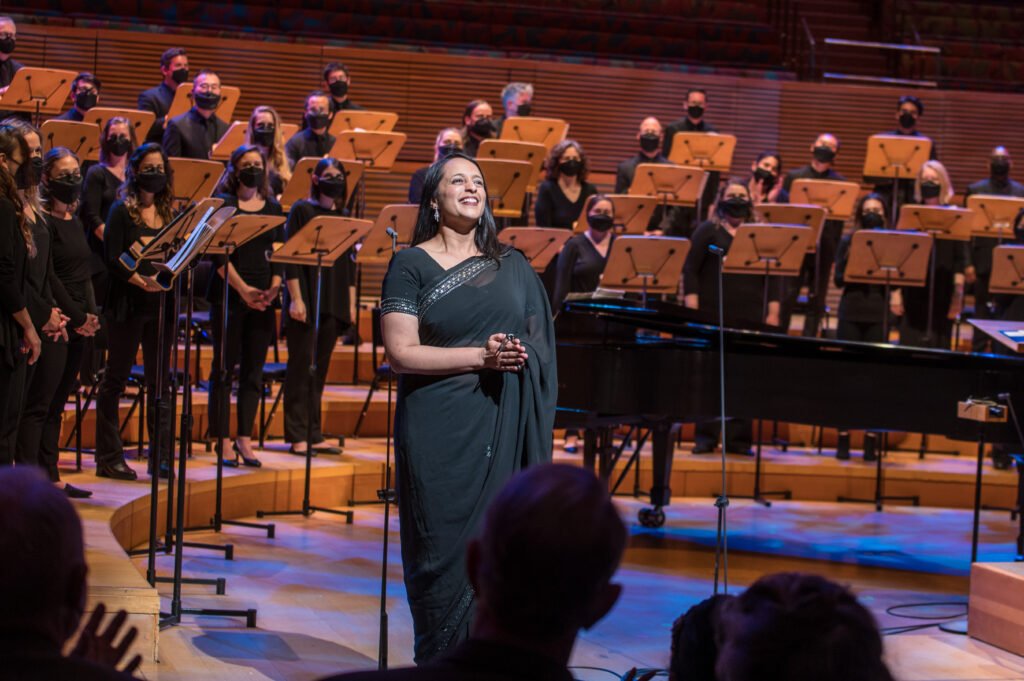
On March 26, the Los Angeles Master Chorale presented the world premiere of Esmail’s latest work at Walt Disney Concert Hall in Los Angeles, CA. Her work was paired with Gabriel Fauré’s Requiem in D minor.
With “Malhaar,” Esmail explored the universal theme of water through a cross-cultural lens, emphasizing that we are all citizens of the earth connected by a huge ecosystem in which water is a life force. The work features Hindustani vocalist Saili Oak and video projection by artist Camilla Tassi.
Esmail, the Los Angeles Master Chorale’s 2020–2025 Swan Family Artist-in-Residence, was inspired by William O’Daly’s book, “Water Ways,” a poetic exploration of the disappearance of water.
She uses O’Daly’s text throughout the piece, intermingled with movements from the traditional requiem text. Overlaid on this texture are passages in Sanskrit and Hindi. The work moves through the various forms of Raag Malhaar (monsoon raags) to convey the importance and power of water.
“I grew up in Los Angeles, so my relationship to the California water crisis runs deep. I know that feeling of panic when I hear a running tap. I remember my elementary school having ‘rain days’ – being cancelled due to flooding when it did rain. ‘Drought’ is a word you learn very young when you grow up here. While it’s raining in Los Angeles this week, and we’ve been so fortunate to have a respite from the years of increasing drought, the fear of losing water is never far from our minds,” shared Esmail, adding that this requiem is a chance to connect from a different, more generative space.
“If we’re able to feel and process the losses we’ve already experienced, we can also connect about how we might be able to work together to prevent further loss,” she noted.
Straddling cultures and continents, Esmail, who describes herself as an “engineer of sonic space,” strives to bring communities together through the creation of equitable musical spaces.
“I love creating music for people who would never typically be on a stage together – whether that is musicians from two different cultures, or people from different socio-economic backgrounds, or levels of training (students and professionals) etc.” she explained. “To make music between unlikely collaborators work, it’s so important to think through each musician’s perspective: What makes them comfortable? What makes them able to feel they can show their best self? Where might they be willing to take a risk? And then I use that knowledge to build environments where musicians can support one another, and bring out the best in each other.”
And creating those joyful hybrid environments requires a lot of training, context, questions, and trial and error.
“It is a lifelong journey, but every step is so deeply rewarding,” admitted Esmail, who holds degrees in composition from The Juilliard School and the Yale School of Music.
While Esmail has inherited her parents’ love for Western classical music, and was exposed to it early on, growing up, she was also drawn to Broadway musicals, and “powerful, opinionated” women like Joni Mitchell and Barbra Streisand.
“Before the internet was ubiquitous and had sheet music readily available for any song, I would hear a song I liked, and if I couldn’t find the music, I would just write it down in music notation. I don’t think anyone in my family realized how unusual that was until I was in late high school!” she recalled. “I wish I’d known more about Indian classical music as a child.”
But she also realizes that tapping into her roots as an adult has enabled her to “learn consciously” and “explore” it more deeply. In 2011-12, Esmail received a Fulbright-Nehru grant to study Hindustani music in India, which gave her a chance to immerse herself in Indian music and culture.
“While I grew up studying Western classical music, I began to feel that my choice of career was beginning to separate me from my own culture — which is what ultimately drew me to make friends who were Indian classical musicians, and see how we might be able to make music together,” Esmail told India-West as she reflected on her life and career. “I think I’m just as American as I am Indian, and nothing makes me happier than working with musicians from both of my musical cultures.”
A winner of various young composer awards, Esmail’s work has been commissioned by ensembles, including the Los Angeles Master Chorale, Kronos Quartet, the Baltimore Symphony, Chicago Sinfonietta, San Francisco Girls Choir and the Yale Institute of Sacred Music. Her music has featured on multiple Grammy-nominated albums, including “The Singing Guitar” by Conspirare and “BRUITS” by Imani Winds.
Esmail was Composer-in-Residence for Street Symphony (2016-18) and for Seattle Symphony (2020-21).
A huge math and linguistics nerd in school, Esmail was always fascinated by the world of music and wanted to go as far and deep as she could.
“To me, music was the greatest challenge. It was something I could imagine doing forever and never getting bored. So far, that’s been true — it’s really hard work to be a musician, but the reward of bringing new ideas, and hopefully some beauty into the world is absolutely worth all that effort and more,” she noted.
This cross-disciplinary fusion of the two music styles came with its own set of challenges: practical, logistical, aesthetic and cultural.
“I could fill a book with so many ‘lost in translation’ moments that are stressful in the moment, but absolutely hilarious after the fact,” she quipped. “This is a part of my work that I love: bringing people with different perspectives into dialogue, so all of our worlds can become a little bigger.”
After creating a stellar career, the Los-Angeles-based composer is now paving the way for other musicians, especially Indian American.
She is the co-founder and artistic director of Shastra, a non-profit organization that cultivates Indian/Western music collaboration in a variety of ways. The name Shastra comes from the ancient Indian text, the “Natya Shastra,” which lays out the foundational principles for performing arts.
Since its founding in 2013, the organization has had everything from festivals and conferences for professionals from these traditions to connect to workshops for students from both genres to learn from one another and build new work together.
“Especially with such a large Indian diaspora in the U.S., there are so many young people growing up in both cultures simultaneously. My co-director, Hindustani singer Saili Oak, and I are seeing how fertile the ground is between these two incredible musical traditions, and how uniquely poised we are to create and cultivate incredible new work at the intersection of these two worlds,” remarked Esmail.


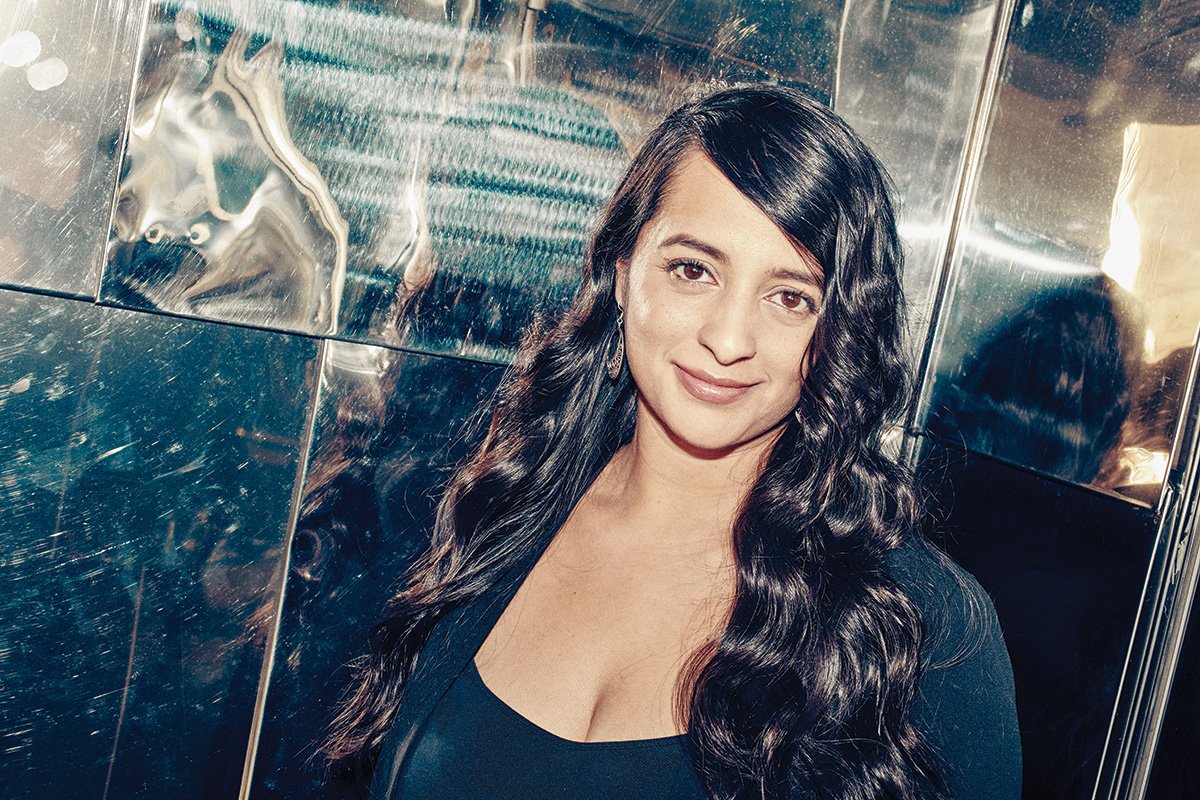
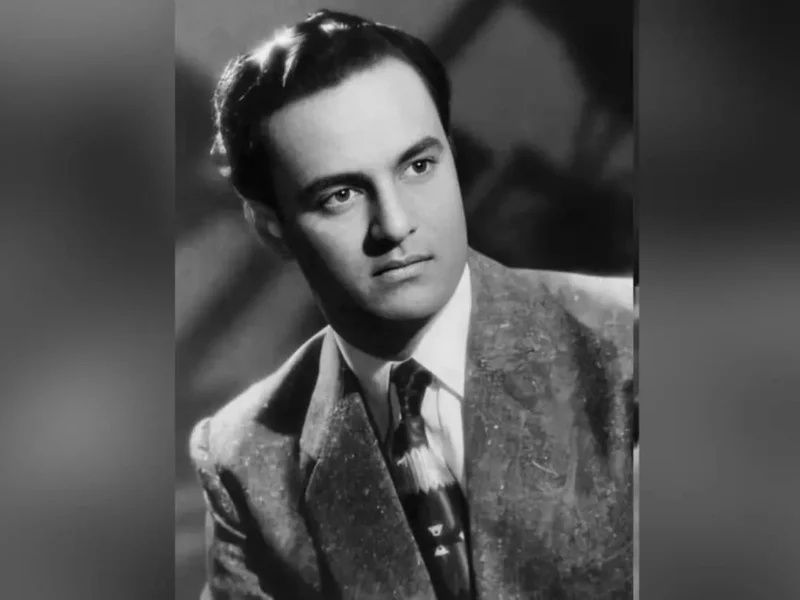
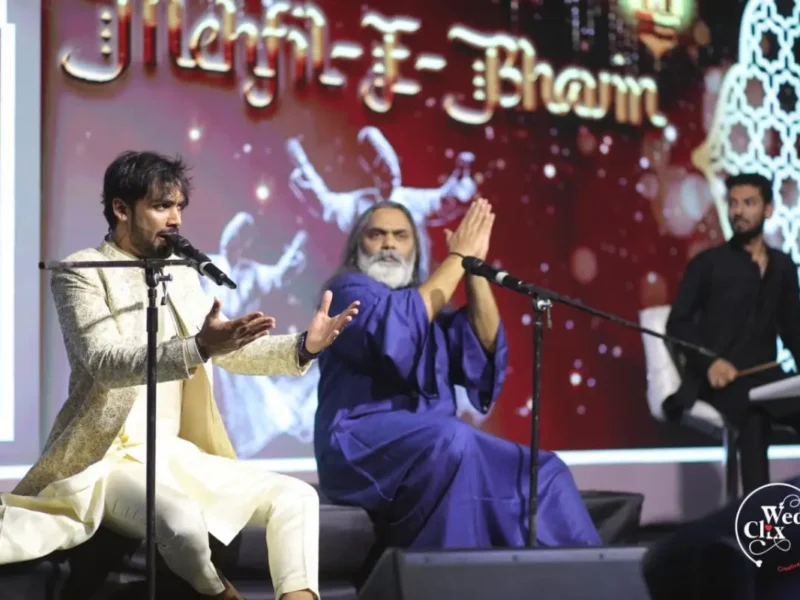
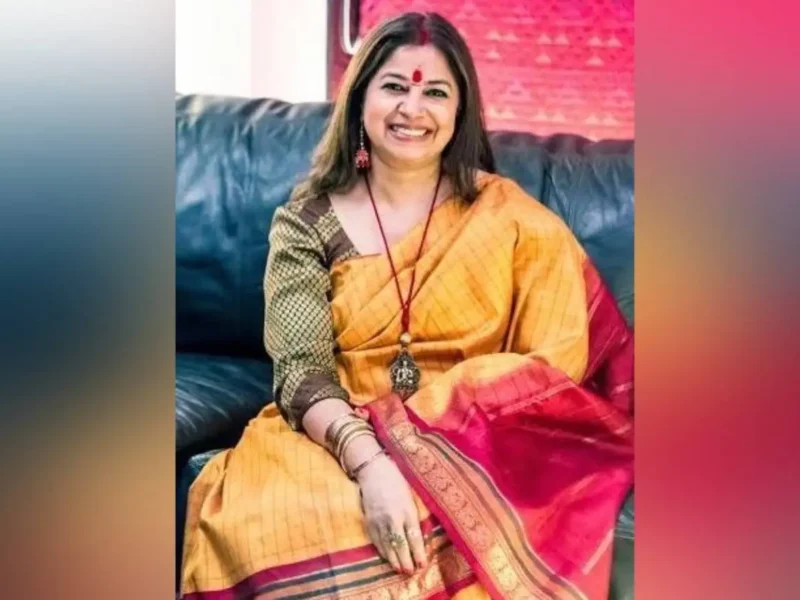
Shabbiir
/
Just lovely to read all the accomplishments of Reena hats off
March 29, 2023